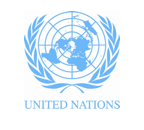Public consultation on draft U.N. Guiding Principles for Business and Human Rights attracts input from 120 countries
Submissions from wide range of stakeholders to inform final recommendations
Published 02-03-11
Submitted by UN Secretary-General's Special Representative on Business & Human Rights
This week, John Ruggie, Special Representative of the United Nations Secretary-General for business and human rights, concluded the consultation period on the draft Guiding Principles for the Implementation of the U.N. 'Protect, Respect and Remedy' Framework.
The Guiding Principles provide practical advice to governments, companies and other stakeholders on how better to protect individuals and communities from adverse human rights impacts of business activities. Ruggie will now finalize his recommendations and submit them to the Human Rights Council for consideration at its June 2011 session.
The Special Representative received feedback on the draft Guiding Principles from 22 November 2010 through 31 January 2011. Submissions came from all over the world, including from governments, individual companies and business associations, civil society, investors, academics, international organizations, law firms, and interested individuals.
A special online consultation forum was created where anyone could propose paragraph-by-paragraph changes (www.srsgconsultation.org). The forum attracted 3,576 absolute unique visitors from 120 countries and territories, with an average of 88 visits per day.
In addition, written comments were invited for posting on the Special Representative's web portal (www.business-humanrights.org/SpecialRepPortal/Home). Some 90 submissions were received by the deadline.
"I am immensely gratified by the number, diversity and quality of contributions," said Professor Ruggie. "It shows that all players really want to get this right." Reconciling the varied and occasionally diametrically opposite views won't be easy," Ruggie acknowledged. "But what matters is how far we've come since the polarization and confusion that characterized this debate when I began my mandate in 2005, and that we are all committed to improving the daily lives of people around the world."
In January, Ruggie also received extensive feedback from governments in an informal session with the Human Rights Council in Geneva.
The Special Representative's mandate was created in 2005 in order to move beyond what had been a deeply divisive doctrinal debate over the human rights responsibilities of companies. Professor Ruggie's goal was to build shared understanding and consensus among stakeholders by holding consultations around the world and by conducting extensive research. Out of that process came the "Protect, Respect and Remedy" Framework, which was unanimously welcomed by the Human Rights Council in 2008. The Council then asked Ruggie to continue working in the same manner to operationalize the Framework. The Guiding Principles were developed in response to that request.
The Special Representative's web portal is hosted by the independent Business & Human Rights Resource Centre. The online consultation forum was built and maintained on a pro bono basis by Daniel Teoh and Sean Doyle, students at The University of Western Ontario. The Special Representative is grateful to both parties for their support.

UN Secretary-General's Special Representative on Business & Human Rights
UN Secretary-General's Special Representative on Business & Human Rights
In July 2005, UN Secretary-General Kofi Annan appointed Harvard professor John Ruggie as his Special Representative on Business and Human Rights. In 2008, Ruggie proposed a policy framework for better managing business and human rights challenges, based on three pillars: the state duty to protect against human rights abuses by third parties, including business; the corporate responsibility to respect human rights; and the need for greater access by victims to effective remedy, judicial and non-judicial. The Human Rights Council was unanimous in welcoming the framework, and extended Ruggie's mandate by three years with the task of operationalizing it. Ruggie's aim is to develop guiding principles for each of its three pillars; his mandate concludes in 2011.
More from UN Secretary-General's Special Representative on Business & Human Rights

